Can You Get Social Security Disability Benefits if You Never Worked?
Many people assume you can only get Social Security Disability if you’ve worked and paid into the system for years. But what if you’ve never worked, or haven’t worked much? This common misconception leaves many individuals with severe disabilities feeling confused and financially vulnerable, wondering if any support is available.
Whether you’re a disabled adult with little to no work history, a parent or guardian of a disabled child, or a caregiver, this article will equip you with the knowledge needed to navigate the system.
The Two Main Types of Social Security Disability Benefits
Quick Takeaway: Yes, it is possible to receive Social Security Disability benefits even if you have never worked. This typically falls under the Supplemental Security Income (SSI) program, which is needs-based.
Understanding the distinction between the two primary Social Security disability programs is crucial, especially for those with limited work experience. These programs serve different purposes and have distinct eligibility requirements.
Social Security Disability Insurance (SSDI)
Social Security Disability Insurance (SSDI) is a program for individuals who have worked and paid Social Security (FICA) taxes for a sufficient period. Eligibility for SSDI is determined by “work credits,” which are earned through your earnings.
Supplemental Security Income (SSI)
In contrast, Supplemental Security Income (SSI) is a federal program designed to provide financial assistance to aged, blind, or disabled individuals who have limited income and resources. Unlike SSDI, SSI is funded by general tax revenues, not Social Security taxes, meaning that no work history is required for eligibility. The core principle of SSI is to provide a financial safety net for those in significant financial need due to age or disability.
Who Qualifies for SSI If They Never Worked? (Eligibility Criteria)
Eligibility for SSI is based on a strict set of criteria, focusing heavily on an individual’s medical disability and financial situation.
Eligibility at a Glance
| Requirement | Must You Meet It? | Notes |
| Disability Definition | Yes | Must meet SSA’s strict definition of disability |
| Limited Income | Yes | Income limits apply (changes annually) |
| Limited Resources | Yes | Resource limits apply ($2,000 individual, $3,000 couple in 2025). |
| U.S. Citizenship/Residency | Yes | Most U.S. citizens or certain qualified non-citizens. |
The SSA’s Definition of Disability (Crucial for Both Programs)
For both SSI and SSDI, the Social Security Administration (SSA) applies a very strict definition of disability. To qualify, you must demonstrate an inability to engage in “Substantial Gainful Activity (SGA)” due to a medically determinable physical or mental impairment that has lasted, or is expected to last, at least 12 months or result in your death.
You can learn more about how the Social Security Administration (SSA) defines SGA, income limits for 2025, which activities count as SGA, and more, in our Substantial Gainful Activity (SGA): Guide to Disability Benefits

Special Rules for Children and Students
The SSA has specific provisions for children and students, recognizing their unique circumstances.
- Disabled Children: Children under 18 can qualify for SSI if they meet the SSA’s disability definition for children, which focuses on “marked and severe functional limitations.”
- Students (under 22): The “Student Earned Income Exclusion (SEIE)” allows students under age 22 who are regularly attending school to exclude a portion of their earned income from SSI calculations.
How to Apply for SSI (Step-by-Step)
The application process for SSI can be lengthy and requires thorough documentation. Being prepared can significantly streamline the process.
The Application Process: Gather Necessary Information
Before you begin your application, gather the following essential documents and information: Medical records, Information about medications and tests, Work history, Bank account information, Living arrangement details, and Income and resource information.
Remember, Trajector Disability can guide you through the Social Security Disability process, manage paperwork, and work hard to win you the benefits you deserve.
Where to Apply:
- Online: Adults aged 18 or older can start the disability application process online through the SSA’s website (https://www.ssa.gov/).
- By Phone: You can call the Social Security Administration directly at 1-800-772-1213 (TTY 1-800-325-0778 for the deaf or hard of hearing) to make an appointment or inquire about the application process.
- In Person: Visiting your local Social Security office is often recommended for SSI applications due to their complexity. A Social Security representative can assist you with completing the necessary forms and understanding the requirements. You can find your nearest office using the SSA’s office locator.
What Happens if You’re Approved? (SSI Benefits & Beyond)
If your SSI application is approved, you will begin to receive monthly financial assistance, and potentially other vital benefits.
Benefit Amount:
The maximum federal SSI benefit amount (Federal Benefit Rate) is set annually. For 2025, it is $967 per month for an eligible individual and $1,450 per month for an eligible couple (Social Security Administration). Some states provide a “state supplement” in addition to the federal amount, meaning your actual benefit may be higher depending on where you live.
Medicaid Eligibility:
One of the most significant benefits of receiving SSI is the potential for automatic Medicaid eligibility. In most states, if you are approved for SSI, you will automatically qualify for Medicaid, which provides comprehensive health insurance coverage.
Continuing Disability Reviews (CDRs):
SSI benefits are not always permanent. The SSA periodically reviews your medical condition and financial situation to ensure you still meet the eligibility requirements. These are known as Continuing Disability Reviews (CDRs). The frequency of these reviews depends on whether medical improvement is expected.
Work Incentives (Trial Work Period, Ticket to Work):
The SSA offers various “work incentives” designed to help SSI recipients test their ability to work without immediately losing their benefits or healthcare coverage. These programs, such as the Ticket to Work program allow you to gradually transition into employment.
Supplemental Security Income (SSI) is a vital program that can provide financial and medical support for individuals with disabilities. Understanding the specific eligibility criteria, especially the strict definition of disability and the income and resource limits, is paramount.
For assistance, you can always rely on our team of experts at Trajector Disability! We’re here to help you understand your potential benefits and guide you through your journey!


